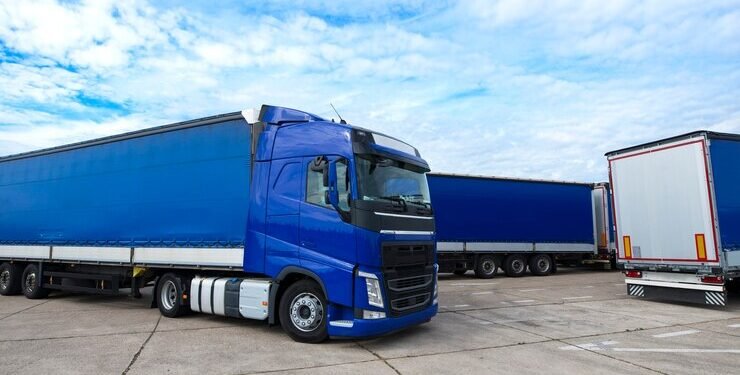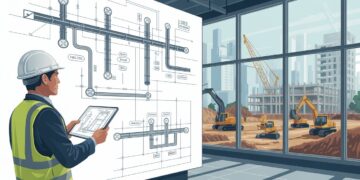The trucking industry is a backbone of the global economy, moving everything from food and medical supplies to construction materials and consumer goods. Yet, many people don’t realize just how diverse the world of trucking jobs can be. Trucking isn’t a one-size-fits-all field; there are many types of trucking positions, each offering its own unique responsibilities, working environments, and opportunities. Whether you’re considering a career change or looking to expand your knowledge, let’s discuss the different types of trucking jobs, the skills they require, and the benefits each type brings to the table.
1. Over-the-Road (OTR) Trucking
Overview: Over-the-Road, or OTR, trucking is often what comes to mind when people think of truck driving. OTR truckers drive long distances, often across multiple states or even cross-country, and are frequently away from home for days, weeks, or even longer.
Responsibilities: OTR drivers typically transport freight for long-haul routes. These drivers are responsible for safely delivering loads, sometimes across thousands of miles. They must be skilled in navigation, safety protocols, and time management.
Benefits and Challenges: OTR trucking often comes with competitive pay, and the freedom of the open road appeals to many. However, the lifestyle can be demanding, with drivers spending long periods away from home. For those who value travel and independence, though, OTR trucking can be an ideal fit.
Best For: Individuals who enjoy long-distance driving, have flexible schedules, and are comfortable being away from home for extended periods.
2. Regional Trucking
Overview: Regional trucking involves driving routes within a specific geographic area, such as the Northeast, Midwest, or Southeast regions of the U.S. Unlike OTR drivers, regional truckers are typically home at least once a week, making this position a popular choice for drivers who want more stability.
Responsibilities: Regional drivers may transport a variety of goods, from food and retail items to industrial equipment, across a smaller radius compared to OTR drivers. They must navigate traffic and routes unique to their designated area and may need to work with local distribution centers.
Benefits and Challenges: This role offers a balance between home time and travel, allowing drivers to see their families more regularly while still exploring new locations within their region. Regional trucking positions may not pay as much as OTR jobs, but the trade-off is often worth it for drivers seeking a more regular schedule.
Best For: Drivers who want the benefits of travel but prefer a bit more stability in their schedules and shorter stints away from home.
3. Local Trucking
Overview: Local trucking is focused on short-distance hauling within a specific city or town. Drivers often have set routes and are generally home every night, making it a popular option for those seeking a standard work-life balance.
Responsibilities: Local truckers usually handle daily deliveries for retail, food, or manufacturing industries, often working with smaller vehicles than long-haul trucks. They may be responsible for loading and unloading cargo, handling paperwork, and interacting with customers.
Benefits and Challenges: The most significant benefit of local trucking is the home time—local drivers often work standard shifts and enjoy the predictability of a fixed schedule. However, local trucking can be physically demanding, with drivers frequently handling freight manually and navigating through city traffic.
Best For: Those who prioritize time at home, prefer regular hours, and are comfortable with physical tasks related to loading and unloading.
4. Dedicated Trucking
Overview: Dedicated trucking involves driving for a specific client or company, transporting the same types of goods on the same routes consistently. This type of trucking can be OTR, regional, or local, depending on the client’s needs.
Responsibilities: Dedicated truckers handle regular routes and cargo, allowing them to build familiarity with their routes and establish a routine. They’re responsible for safely transporting goods and often interact with the same dispatchers and warehouse workers.
Benefits and Challenges: The routine nature of dedicated trucking appeals to many drivers who prefer consistency and predictability. However, some may find the lack of route variety monotonous. The stability often results in fewer surprises, and dedicated drivers typically enjoy more reliable schedules and income.
Best For: Drivers who prefer structure and predictability, and enjoy forming consistent relationships with clients and co-workers.
5. Tanker Trucking
Overview: Tanker trucking involves transporting liquids or gases, such as gasoline, chemicals, or even food-grade liquids like milk or juice. Tanker truckers require specialized skills and certifications due to the nature of the cargo they carry.
Responsibilities: Tanker truck drivers are responsible for transporting hazardous or sensitive materials, often requiring strict adherence to safety regulations. They need to monitor the vehicle carefully, as liquid cargo can shift, making driving more challenging.
Benefits and Challenges: Tanker trucking is generally one of the higher-paying trucking positions due to the additional risks involved. However, it can be physically and mentally demanding, as drivers must handle potentially hazardous materials with extreme caution.
Best For: Experienced drivers who prioritize high earnings, are detail-oriented, and are willing to take on the additional responsibility and challenges of hauling liquid cargo.
6. Flatbed Trucking
Overview: Flatbed trucking involves transporting oversized or irregularly shaped cargo, often using an open flatbed trailer. Cargo can include construction materials, large machinery, or vehicles, making flatbed trucking a specialized field.
Responsibilities: Flatbed truckers are responsible for securing and covering cargo, as the open design of the trailer means that loads are exposed to the elements. Drivers must ensure that everything is tightly strapped down to prevent shifting or falling during transit.
Benefits and Challenges: Flatbed trucking offers higher pay than standard freight due to the skill and extra physical labor required. However, the job can be physically demanding, as drivers often have to handle heavy equipment and work outdoors in varying weather conditions.
Best For: Drivers who enjoy hands-on work, are comfortable with physical tasks, and are detail-oriented when it comes to securing cargo.
7. Refrigerated Trucking (Reefer)
Overview: Refrigerated trucking, or “reefer” trucking, involves transporting perishable goods like food and pharmaceuticals. Drivers use refrigerated trailers to maintain specific temperatures and ensure that products remain fresh.
Responsibilities: Reefer drivers are responsible for setting, monitoring, and maintaining the temperature inside the trailer throughout their journey. They must also handle delivery schedules carefully, as perishable goods often have strict delivery timelines.
Benefits and Challenges: Reefer trucking offers consistent work, as there’s always a demand for transporting perishable goods. However, it can be stressful to manage temperature control and ensure that products arrive in pristine condition. Reefer drivers also often have to deal with nighttime driving and strict deadlines.
Best For: Drivers who enjoy consistency, are detail-oriented, and are comfortable with the responsibility of temperature-sensitive cargo.
8. Freight Hauler/General Freight
Overview: Freight hauling is a general term for drivers who transport a variety of goods. Unlike specialized truckers, general freight haulers might carry different items from one load to the next.
Responsibilities: General freight drivers are responsible for picking up, delivering, and sometimes loading or unloading their cargo. These drivers need to be adaptable, as they may carry anything from retail products to raw materials.
Benefits and Challenges: The variety can keep the job interesting, as drivers handle different types of cargo. However, they need to be adaptable to handle various loading and unloading procedures. Freight haulers may work locally, regionally, or over long distances.
Best For: Flexible drivers who enjoy variety in their loads and are comfortable adapting to different types of freight.
Choosing the Right Trucking Job for You
With so many types of trucking positions available, it’s important to consider your lifestyle preferences, career goals, and the skills you want to develop. Are you drawn to the idea of long-distance travel and independence? OTR might be a good fit. Do you want a more predictable schedule to spend more time with family? Regional or local trucking could be ideal.
As the demand for skilled truck drivers continues to grow, there’s a role for every type of driver in the trucking industry. Whether you’re new to trucking or looking to specialize, there’s never been a better time to explore the many opportunities in this essential field. So, which type of trucking job aligns with your goals?
















